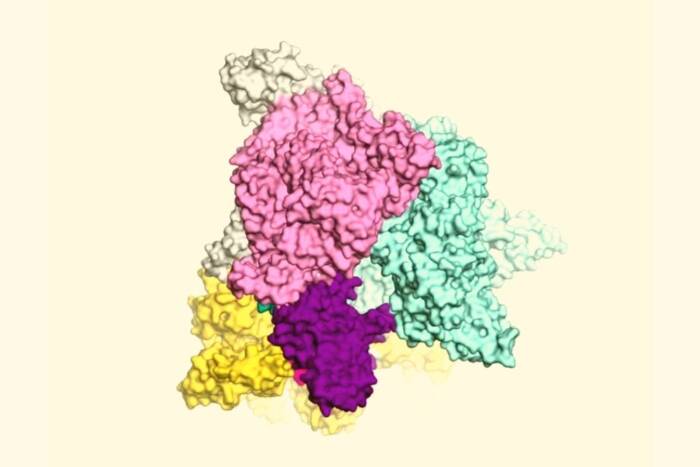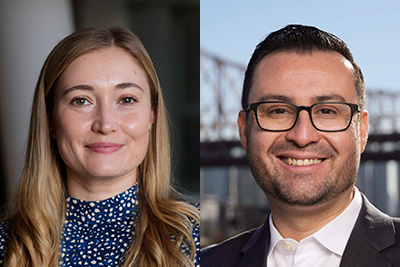David Rockefeller Fellowship awarded to third-year Robert Heler, a bacteriologist
by AMELIA KAHANEY
Robert Heler, a graduate fellow in Luciano Marraffini’s Laboratory of Bacteriology,has been awarded the 2015 David Rockefeller Fellowship, given each year to an outstanding third-year student for demonstrating exceptional promise in science and leadership.
The fellowship was established by alumni in 1995 as an expression of gratitude for Mr. Rockefeller’s role in founding the university’s graduate program and for his commitment to its success. Mr. Rockefeller has said that few honors have meant so much to him as the creation of this award.
Born and raised in a small town in the Transylvania region of Romania, Mr. Heler first considered pursuing a career in science in 2008, when he traveled to India to compete in the International Biology Olympiad after having won at the national level. He returned with the bronze medal, coming in third against biology students from every corner of the world. Though winning the title took years of extracurricular science study, Mr. Heler says, “I obviously loved doing it.”
 Mr. Heler completed his undergraduate studies at the University of Richmond, in Virginia, where his job “keeping the silence” at a tiny science library on campus allowed him twenty hours a week of virtually uninterrupted study time. It paid off—he graduated first in his class of over 700 students with a dual degree in biochemistry and molecular biology, and computer science.
Mr. Heler completed his undergraduate studies at the University of Richmond, in Virginia, where his job “keeping the silence” at a tiny science library on campus allowed him twenty hours a week of virtually uninterrupted study time. It paid off—he graduated first in his class of over 700 students with a dual degree in biochemistry and molecular biology, and computer science.
Rockefeller was his top choice for grad school. “I loved the flexibility of the Rockefeller program,” says Mr. Heler. “At other schools, I would have had to apply to specific departments. I would never have thought I would join a bacteriology lab without sampling this topic during my rotation.”
In the Marraffini lab, Mr. Heler studies the molecular basis of CRISPR- Cas immunity, a system which provides bacteria with adaptive protection against viral infections, but about which very little is known. In a series of genetic experiments, he discovered a new function for the protein Cas9, a vital agent of the CRISPR system.
“It might be the case that the novel function of Cas9 that we identified could lead to a whole new field of applications,” he says. “To me, that’s the most exciting part of what we’re doing, and the most promising.” Also exciting: His findings were published in a Nature article earlier this year, with Mr. Heler as a co-first author, and they were the topic of the proposal that led him to obtain a prestigious Howard Hughes Medical Institute student fellowship.
“Robert is an exceptional scientist who can conduct original research with great creativity and minor supervision,” says Dr. Marraffini. “He is motivated and hard-working, and is able to postulate clear hypotheses and test them on the bench.”
Outside of Rockefeller, Mr. Heler seeks volunteer projects that utilize his programming skills and computer science background. Most recently he built a database web application for a local nonprofit organization whose mission is to help secure jobs for low-income residents of Brooklyn, New York. Mr. Heler is also interested in forging partnerships between scientists and the financial industry, and is currently working with a few other students to launch the Tri-I Finance Club, which will be open to students at Rockefeller and neighboring institutions.


